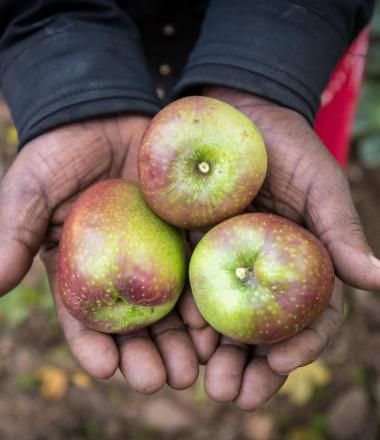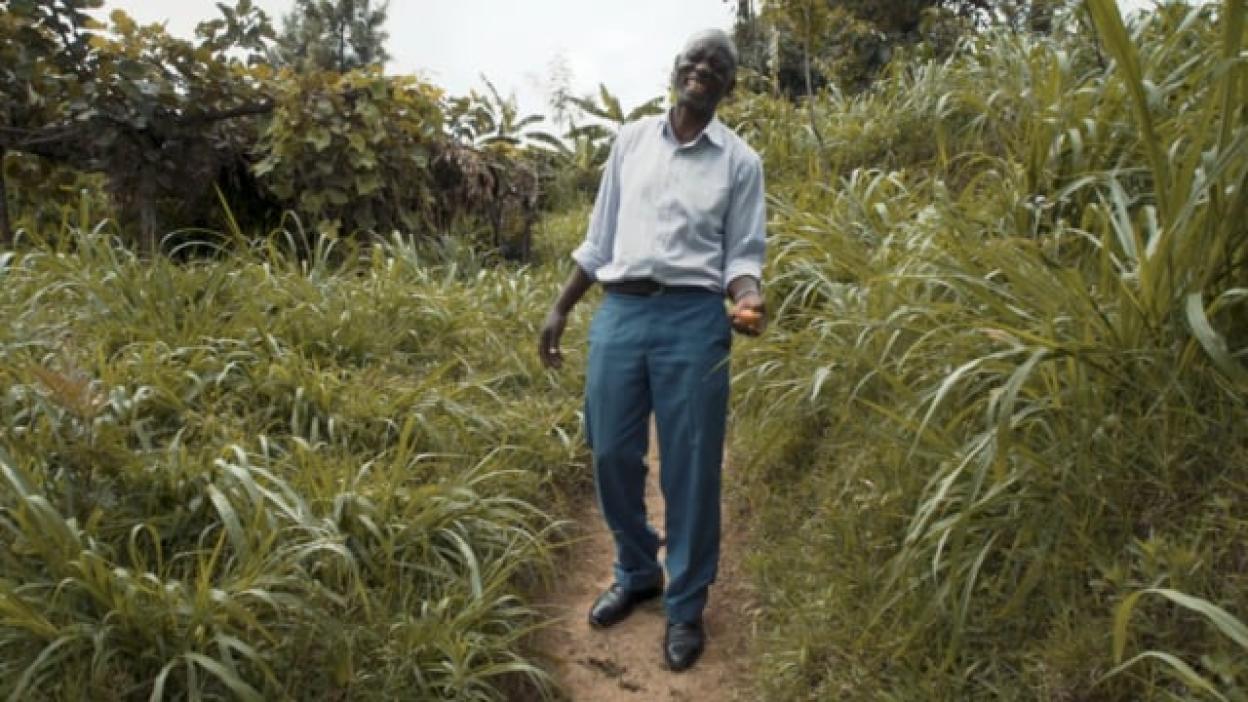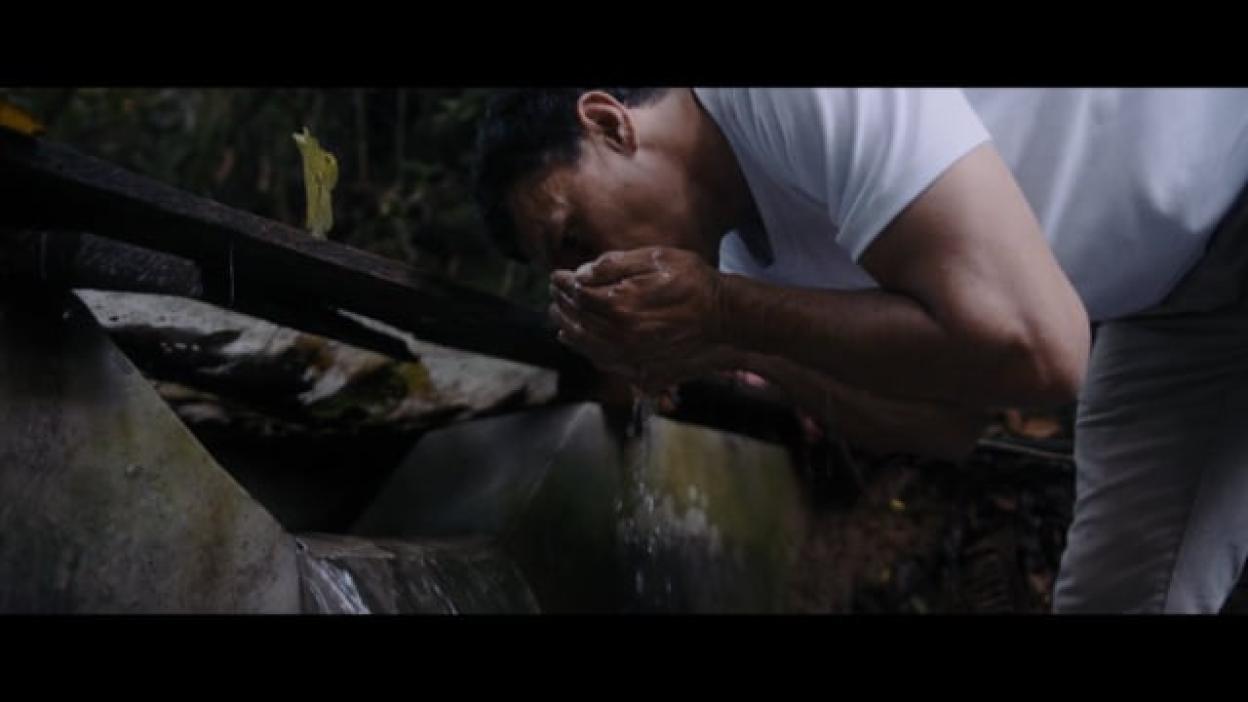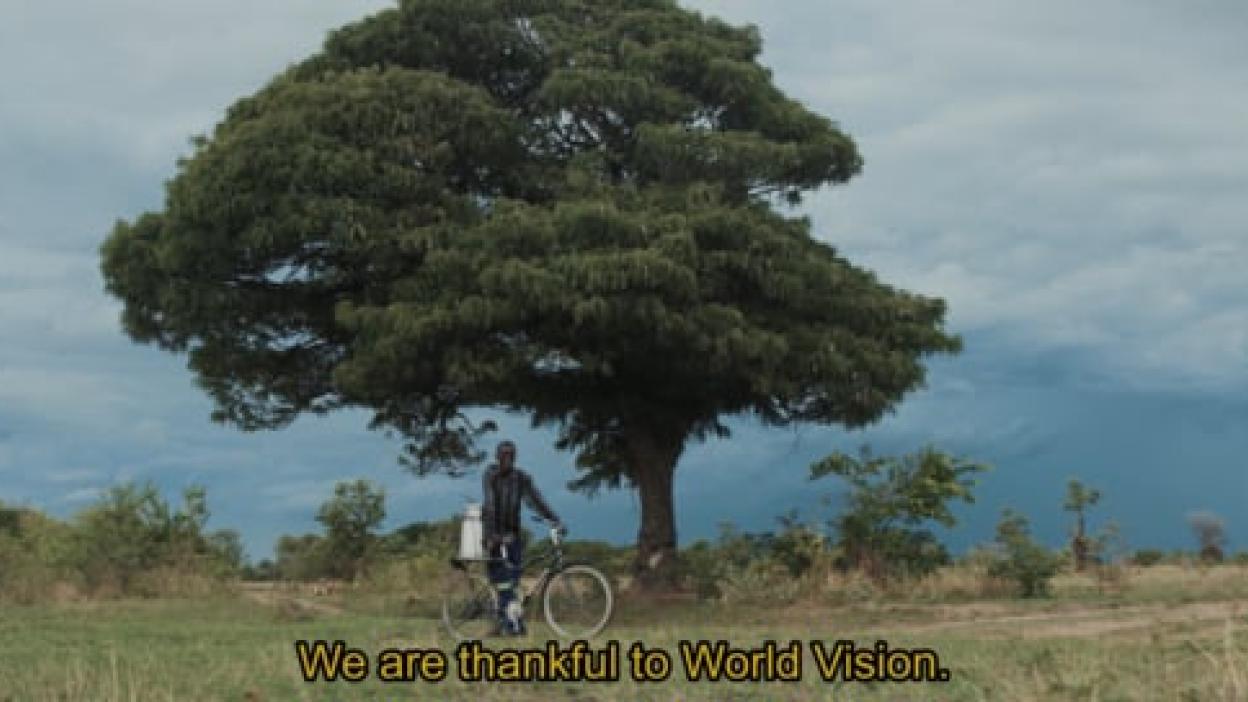
Building Secure Livelihoods
A world where the measure of our wealth is the well-being of all children
At World Vision, we believe in a world where all children flourish. We want children to be treasured, given opportunities to grow strong and participate in communities that are free of need, where the most vulnerable can live in security and confidence.
Children whose basic needs are being met can look to the future with hope. Our goal is to break the cycle of poverty for the most vulnerable by strengthening families’ capacity to provide well for their children.
Most of the world’s extremely poor are smallholder farmers, vulnerable to weather and economic uncertainties. Our Building Secure Livelihoods approach focuses on equipping and empowering families to overcome these uncertainties in practical and sustainable ways.
Empowering the vulnerable
Many of the world’s poor have become trapped in a mindset of disempowerment and dependency. Our approach begins by helping smallholder farmers, especially women, develop an empowered worldview.
We believe that all people are created in the image of a loving and redeeming God who has made each of us accountable to love, respect, and care for ourselves, our children, those in need, and the environment around us.
Equipping smallholder farmers to develop productive and resilient livelihoods
We equip farmers by training them to manage money and start saving—some for the first time ever. And with our agriculture and business training, they can increase their market power by buying and selling in groups. Through mobile data technology, we help rural farmers easily access credit, savings, and insurance services. We also connect farmers with VisionFund International (World Vision’s microfinance network), which provides loans to families for seeds, tools, and equipment.
We also equip smallholder farmers in managing the natural resources around them. Improving soil quality and water use makes farms more productive and weather-resilient. And by caring for surrounding ecosystems, families can keep their environments sustainable.
Lastly, our focus on awareness and readiness equips farmers in accessing information about animal and plant diseases, weather, and market fluctuations. Managing risks and taking timely action keeps them thriving.
Meet Israel Nsengiyumva
Watch how the introduction of new seed varieties and a sense of self belief can transform a family.
A brighter, sustainable future for millions of children
Training in sustainable agriculture techniques has helped over 100,000 farmers from 35 countries boost their income and better provide for their families. Sustainability means smallholder farmers will continue to be empowered to improve their children’s education, health, and overall well-being as World Vision programming transitions out of the community.
We’ve found success in Tanzania, where families saw their incomes grow 400 to 600 percent in many cases. Overall, across our livelihoods programmes, we’ve empowered 700,000 individuals to produce their own food and income through improved agriculture, creating a ripple effect that increased the food security of more than 3 million people in their communities.
We help over a million of the most vulnerable people (72 percent of these are women) each year with microloans. Each year, these loans deliver a brighter future for more than 3.5 million children. And with a repayment rate of over 98 percent, we are continuously recycling capital back into communities. In Armenia, every dollar invested has helped smallholder farmers bring an additional two dollars in income to their communities.
Savings for Transformation
We encourage smallholder farmers, especially mothers, to join Savings Groups to help their children thrive in a stable environment. We have half a million active members in Savings Groups, 78 percent of whom are women, with a total savings of $12 million. In Tanzania alone, $1.4 million in net wealth was created by 6,409 people in Savings Groups between 2013 and 2016, providing for safer and more secure childhoods.
Learn how savings groups and a loan helped Mariamu Baka, a Tanzanian farmer and small business owner, successfully take on the challenge of economically sustaining her family.
A holistic approach to sustainable communities
We view poverty holistically. We desire to ignite a sense of hope and self-worth, empowering vulnerable families to change their own future. World Vision’s Building Secure Livelihoods programme has been incredibly successful because it takes a holistic approach toward economic development.
We want to promote equality and inclusiveness. Women are now more enabled to become financially independent. When their families’ livelihoods become sustainable and resilient, their income and assets can increase, and their decision-making can become transformed. Most of all, all these factors allow mothers and fathers to provide better for their families.
At World Vision, wealth is measured by the happiness and well-being of all children.
Water and Economic Development
When families gain access to water, sanitation, and hygiene, children become healthier, and family incomes increase. Click here to learn about other ways access to Water transforms children’s lives.
Watch the video below to see how World Vision uses water to empower Marisol and Henry’s coffee co-op to create jobs that in turn empower women and children in their communities. A Water to Coffee to Mug Story.
Education and Economic Development
Increased income allows families to afford a quality education for their children. Better and more efficient farms free children to focus on school. Find out more about our approach to Education.
Meet Joseph. After he retired as a teacher, Joseph became a dairy farmer to ensure his children continue to have access to education.
Child Protection and Economic Development
Girls who grow up in poverty are at the greatest risk of child marriage. When families have more secure livelihoods and no longer struggle to meet their basic needs, girls are less likely to be married off by their families as a strategy for economic survival. Read about how we are working to reduce child marriages around the world.
Click here to see how else we champion Child Protection.


